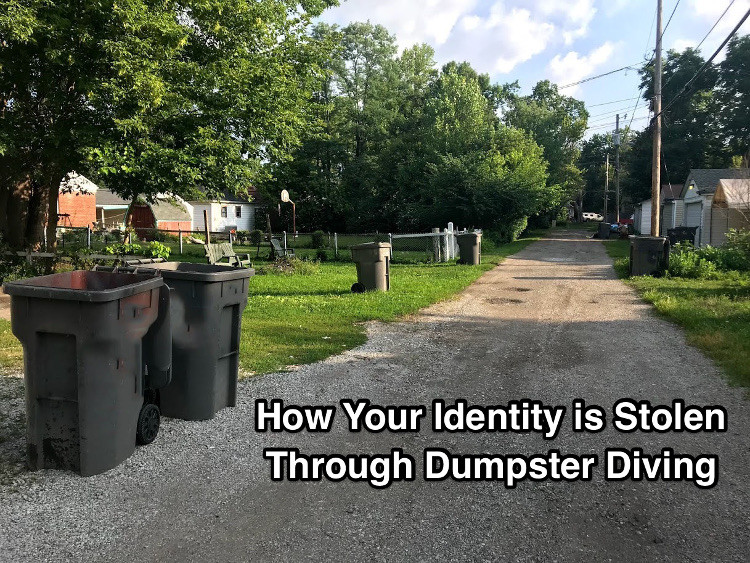How Your Identity is Stolen: Dumpster Diving

Identity theft has made headlines in the recent years after news reports about consumers’ private information being vulnerable after data breaches at large companies. It can result in false debt, credit report errors, being denied credit or loan amounts, and so much more.
When you first think of the phrase “identity theft,” you may picture a dark room with someone’s face lit up solely from the glow of a computer with tabs open from the dark web. However, identity theft doesn’t have to be a secluded, high-tech crime. In fact, it can happen right outside your door before trash day.
How Dumpster Diving Can Lead To Identity Theft
The saying “one man’s trash is another man’s treasure” is all too true in the context of dumpster diving and identity theft. Thieves dig through garbage bags and dumpsters looking to find private information that may give insight to your personal records.
They’re looking for documents that contain your Social Security number, street address, phone number, email address, date of birth, and even your handwritten signature. This information can be found on bills, pre-approved credit card offers, bank statements, medical documents and so much more.
Take these extra precautionary steps when throwing things away:
- Cut up old credit and debit cards so that the information isn’t legible.
- Shred your documents before discarding them. Separate the pieces into different loads of trash bags and containers. Make it as difficult as possible for someone to put the pieces together.
- Use a secured and trusted shredding service when throwing away anything containing confidential information. Never toss these items into a public bin.
How To Recognize Identity Theft
Knowing how to spot identity theft can help narrow down where to correct any mistakes made concerning your private information. The biggest signs of identity theft include suspicious activity regarding your finances. Some examples are:
- You don’t recognize activity on your bank accounts, credit report, or medical or healthcare statements.
- There is a data breach with a company you use.
- More than one tax return was filed in your name.
- Regular bills stop coming, or you receive bills for accounts you didn’t open.
Regularly monitoring your accounts and requesting your free credit report every 12 months can be especially helpful to spot any unusual activity. If you notice something that isn’t accurate, take action immediately.
What To Do As A Victim Of Identity Theft
Under the Fair Credit Reporting Act and Fair Debt Collection Practices Act, you have rights protecting you from the devastating results of identity theft.
Contact the credit reporting agency to dispute errors on your credit report that appeared as a result of identity theft. If you’re contacted about paying back a debt you don’t actually owe, you can dispute the debt.
If you need help disputing with the credit report agencies or the mistakes are not fixed, contact the consumer protection attorneys at Francis Mailman Soumilas, P.C.. Fill out a free case review or call us at 1-877-735-8600 today to get started.
